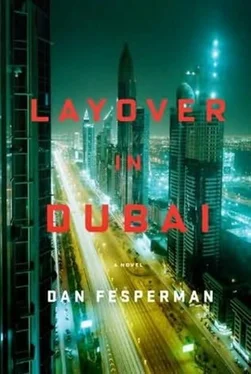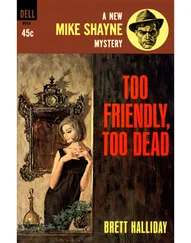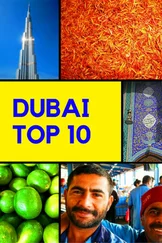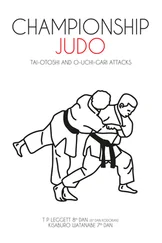“There they are, way on the other side,” Sharaf said. A black Toyota Prado SUV eased into view from the upper ramp, tires squealing as it headed toward the Mafia men in the far corner. Sharaf and Sam had just reached the glass walls of the escalator cube.
“Stay back!” Sharaf said. “We’ll watch from here.”
The car stopped next to the men, maybe a hundred yards from where Sharaf and Sam stood, trying to watch through the glass walls.
“Should we be out in the open like this?” Sam whispered even though the nearby fountain was roaring like a waterfall. His question was answered in rapid succession by two muffled pops, sharp but wheezy barks that echoed dully off the low concrete ceiling. The two Russians dropped out of sight, and the Prado’s rear hatch swung open. The torsos of the four Iranians stooped downward, then moved toward the Prado. The hatch slammed shut and the Iranians climbed in through the front doors. It all happened within seconds.
“Jesus! Did they just-?”
“Get inside!” Sharaf hissed. “Try to get up the escalators before we’re seen!”
Sam did as he was told, weak in the knees. He didn’t dare look below, but he heard the tires of the Prado squealing as the roaring SUV headed back in their direction. Sharaf clambered up the rising steps, and Sam followed. Just before they moved out of sight he glimpsed a flash of black metal as the Prado raced past below, toward the exit ramp. When they stepped off on the next floor, Sharaf was panting loudly. A Japanese family, overloaded with shopping bags, bumped past them with a stream of apologies in halting English. Sam tugged Sharaf aside.
“Where to now?” he asked.
“We wait five minutes for everyone to clear out, then we do the same.”
“What about Rybakov? Won’t he be waiting for his men?”
Sharaf shook his head.
“His business here is complete.”
“But-?”
“It was an arrangement. Part of his apology. Arzhanov must have done something very wrong. By killing your friend, most likely. What doesn’t make sense is why that would have upset the Iranians. They don’t control prostitution. The Russians do.”
“Could Charlie have been working for them?”
“The Iranians? Do you really think so?”
“No. But I didn’t know him very well.” And it certainly fit with Nanette’s theory that Charlie was involved with unsavory dealings. He wondered if she had suspected as much even earlier. It would better explain why she had wanted him to track Charlie’s movements. “What will you do now? Arrest them?”
“Those men in the Prado? As far as I’m concerned this never happened.”
Sam was amazed.
“You’re not reporting it?”
“What is there to report? We saw two men drop from sight and heard popping noises that could have been cars backfiring. The whole time, the security cameras were blind as bats. There are no bodies to be found, and never will be, unless Daoud finds them for us. More to the point, if I report this the first question will be, ‘What were you doing following Anatoly Rybakov, and why was the American with you?’”
“Yes, but-”
“Around my office, Mr. Keller, the prevailing view is that as long as these people settle their own affairs without involving the rest of us, then who are we to interfere? Why do you think our crime rate is so low? It is the same reason there are so few fatal accidents at construction sites. All that matters is how you do the counting.”
Sam supposed he shouldn’t have been surprised. But if all that were true, then why was Sharaf so interested in this case? Was he the only cop who cared, or was he, too, part of the problem?
“What do we do now?” Sam asked.
“We go to our final stop, just around the corner. Then you can make your phone call.”
That was a relief to hear, although Sam was shaken by what he’d just seen. What he really wanted was a stiff drink, but Sharaf was already bustling toward the exit. A few minutes later they emerged on the street and strolled past the Burjuman’s ground-level shops. Road workers were tearing up the median at 9 p.m. to add an extra lane. Across the way a construction crew was building a high-rise. This place never rested.
Sharaf pushed through a revolving door into a sushi bar, where a long conveyor belt carried food past diners along a three-sided counter. The policeman led them to a pair of seats away from the window.
“Who are we meeting?” Sam whispered.
“No one. I’m hungry. Rybakov’s little rendezvous made me miss dinner.”
“I don’t have much of an appetite.”
“Then don’t eat. Any policeman who went off his feed after an episode like that wouldn’t live very long.”
Sharaf plucked a purple plate from the conveyor belt. A colorful menu card told Sam it was a dragon roll, with eel, crab, avocado, and spicy rice.
“I wouldn’t have guessed you for sushi.”
“You also wouldn’t have guessed a CEO would have a curfew. Yet she does.”
Sam said nothing.
“She lives in our house by choice, you know. It’s not me or her mother making her do it, even though she likes to say so. The reality is, a single Emirati woman can’t rent her own apartment, even if her parents let her.”
“It’s illegal?”
“No. But there isn’t a landlord in Dubai who would do it. And as long as she lives in my house, she lives by my rules. One rule is that she doesn’t talk to unfamiliar men who happen to be there on her father’s business.”
“Sorry.”
“You’re forgiven. She knew better. And if, while my back was turned, she gave you one of her business cards, I would like you to please return it now.”
Sharaf held out a hand.
“She didn’t,” Sam lied. “We never made it that far.”
The wording made it sound like they had been caught making out on the couch, and Sam blushed. His reaction drew a fleeting grin. It was the first time he had seen Sharaf smile, and Sam was surprised by how much it pleased him. In spite of everything, he was beginning to like the man. Maybe it was the fatherly gruffness, which for all its testiness was sort of comforting. He did still wonder what Sharaf’s real motives were, but he sensed a basic honesty. Or maybe he had been swayed by Laleh.
Sharaf made quick work of the first plate and reached for a tuna roll on an orange saucer. He spritzed soy sauce into a bowl, stirred in a lump of wasabi, then swaddled a piece of the roll with a slice of pickled ginger before dipping it in the sauce. He downed it in a single bite, wincing as the wasabi exploded in his sinuses. Then he flagged down a waitress and ordered tea.
“And you, sir?” she asked Sam. “Something from the hot menu, maybe?”
In spite of himself, he was now hungry.
“Shrimp tempura. And I’ll have a tuna roll from the belt.”
“To drink?”
“Do you have beer?”
She frowned. So did Sharaf. Sam then remembered that alcohol was nonexistent once you strayed beyond a hotel. Even the bar at the ski slope had been affiliated with an adjoining hotel. So had all the discos he and Charlie visited.
“Mineral water, then.”
“Tell me,” Sharaf said after the waitress departed. “And this is not out of piety, I am only curious. Why do you Americans need to consume alcohol with every meal? Is it for digestion? Or is it from some compulsion to chemically relax?”
“With beer I like the taste. Especially with the wasabi. The tang of the hops. The yeastiness.”
“Tell me about beer. Gin I can smell from across the room. Whiskey, too. Vodka, as far as I can determine, might as well be odorless rocket fuel, mined straight from an iceberg. I suppose that is why the Russians like it. But with beer you mentioned the yeastiness. Does it taste at all like kvass? Because a Russian I once knew told me that kvass tasted like liquid bread. I tried some once-it has no alcohol, you see-and he was right. Is beer the same?”
Читать дальше












